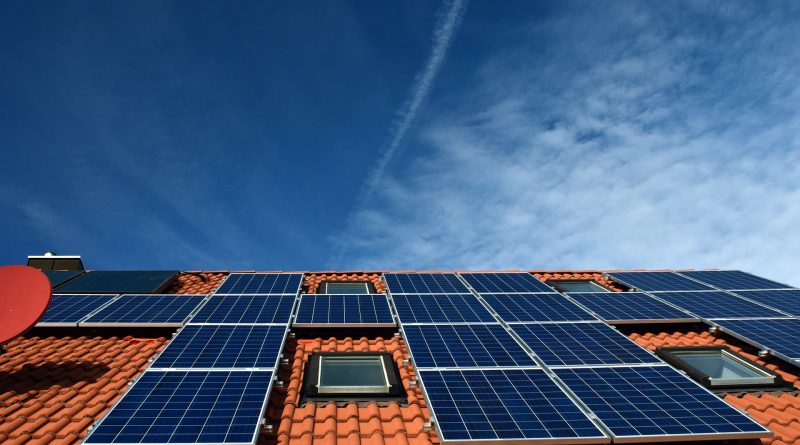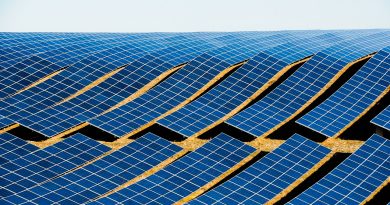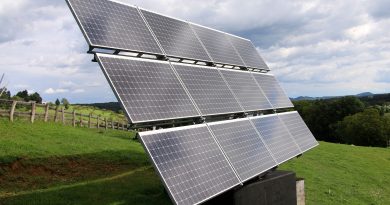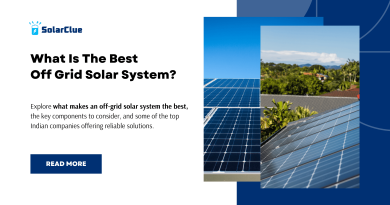Decoding Solar Choices: On-Grid vs. Off-Grid Panels
Solar energy is becoming an increasingly popular and viable alternative to conventional power sources. The advancements in solar technology have made it possible for individuals and businesses to harness the power of the sun to generate electricity. However, when it comes to setting up a solar system, one of the most critical decisions is choosing between on-grid and off-grid solar panels. Both options have their advantages and disadvantages, and understanding them is vital before making an informed decision. In this blog, we will compare on-grid and off-grid solar panels, weighing the pros and cons to help you determine which one is better for your specific needs.
Table of Contents
On-Grid Solar Panels
On-grid solar panels, also known as grid-tied or grid-connected systems, are connected directly to the utility grid. This means that the solar energy generated by these panels is first used to power the electrical loads within the property, and any excess energy is fed back into the grid for credit or compensation. The main advantage of on-grid solar panels is that they are more affordable to install since they do not require expensive battery storage systems. Additionally, on-grid systems allow the owner to take advantage of net metering programs, which offset the cost of electricity consumed from the grid with the surplus solar energy supplied to it. As a result, on-grid solar panels can significantly reduce or eliminate electricity bills. Furthermore, on-grid systems require less maintenance as the grid serves as a backup power source during moments of low solar generation, such as at night or during inclement weather.
Off-Grid Solar Panels
Off-grid solar panels, also known as stand-alone or independent systems, operate independently of the utility grid. These systems incorporate battery storage to store excess solar energy generated during the day for use during periods of low solar production. The primary advantage of off-grid solar panels is that they provide electricity in remote areas without access to the utility grid. They offer autonomy and self-sufficiency, allowing individuals to disconnect from the reliance on traditional power sources. Additionally, off-grid systems provide resilience during power outages, making them ideal for regions prone to blackouts or natural disasters. However, off-grid systems generally have higher upfront costs due to the need for battery storage, and they require ongoing maintenance to ensure the optimal functioning of the batteries.
Factors to Consider
When deciding between on-grid and off-grid solar panels, several factors should be considered. These include:
1. Cost
On-grid solar panels are generally more cost-effective to install since they do not require battery storage. They rely on the utility grid as a backup power source, reducing the overall expenses. Off-grid systems, on the other hand, involve higher upfront costs due to battery storage requirements.
2. Reliability
On-grid solar panels provide a reliable power source as they are connected to the utility grid. This ensures a continuous supply of electricity, even when solar generation is low. Off-grid systems rely on battery storage, which can be affected by factors such as battery degradation, extreme temperatures, or insufficient solar energy accumulation. Proper maintenance and monitoring are essential for ensuring the reliability of off-grid systems.
3. Location
The location of your property plays a crucial role in determining whether on-grid or off-grid solar panels are the better option. If your property is in a remote area without access to the utility grid, off-grid solar panels are the logical choice. Conversely, if your property is grid-connected, on-grid solar panels are ideal as they can take advantage of net metering programs.
4. Environmental Impact
Both on-grid and off-grid solar panels have a positive environmental impact. By utilizing solar energy, both options reduce reliance on fossil fuels and lower carbon emissions. However, off-grid systems are more self-sufficient and contribute to greater energy independence on an individual level.
Conclusion
Choosing between on-grid and off-grid solar panels requires careful consideration of various factors, including cost, reliability, location, and environmental impact. On-grid solar panels are more affordable to install and provide a continuous power supply through the utility grid. They are suitable for grid-connected properties and offer the advantage of net metering. Off-grid solar panels, on the other hand, provide energy independence and resilience during power outages, making them ideal for remote areas and regions prone to blackouts. They require battery storage, which increases upfront costs and necessitates ongoing maintenance. Ultimately, the decision between on-grid and off-grid solar panels depends on your specific circumstances and priorities. Assess your needs, consult with solar experts, and weigh the pros and cons to make an informed choice that aligns with your energy requirements and goals. Harnessing solar energy is a step towards a sustainable future, regardless of the system you choose.
Ready to make the right solar choice for your energy needs? SolarClue® is here to guide you toward a sustainable future. Explore our range of on-grid and off-grid solar solutions.
Frequently Asked Questions
On-grid panels are connected to the utility grid, while off-grid panels operate independently, storing excess energy in batteries.
The cost-effectiveness depends on factors like location, energy consumption, and grid accessibility. SolarClue® experts can help you make an informed decision.
Generally, on-grid systems do not require batteries, as they feed excess energy back into the grid.
Yes, off-grid panels with battery storage can supply power during grid outages, ensuring continuous energy availability.
Incentives vary by location. SolarClue® can provide information on available incentives in your area.
Off-grid solar panels are ideal for remote locations without access to the utility grid.
Yes, on-grid panels contribute to grid sustainability by feeding excess energy back, promoting a more efficient and balanced grid.
It is possible to switch, but it may involve system modifications. Consult with SolarClue® for a smooth transition.
On-grid systems generally require less maintenance, while off-grid systems may need more attention, especially to batteries.
Consider factors like grid accessibility, energy needs, upfront costs, and long-term sustainability goals. SolarClue® can provide personalized advice based on your situation.




